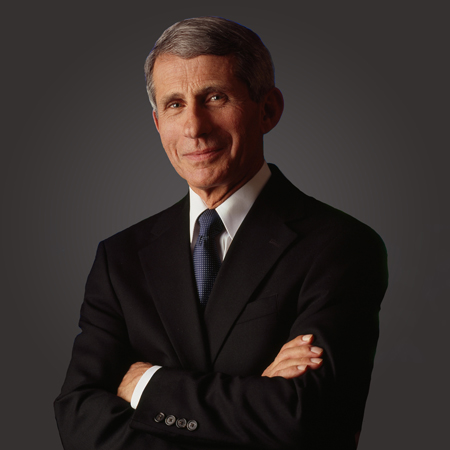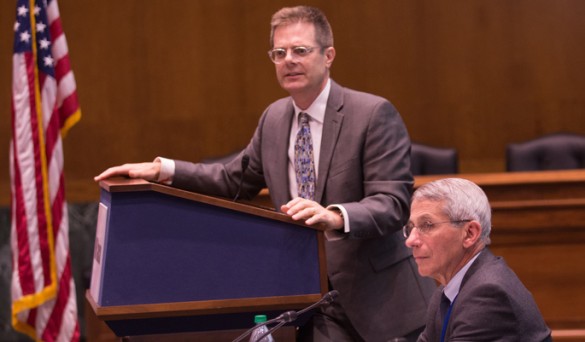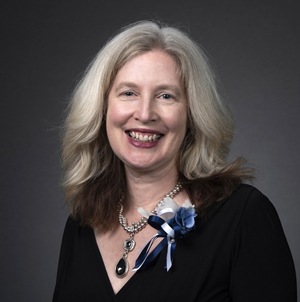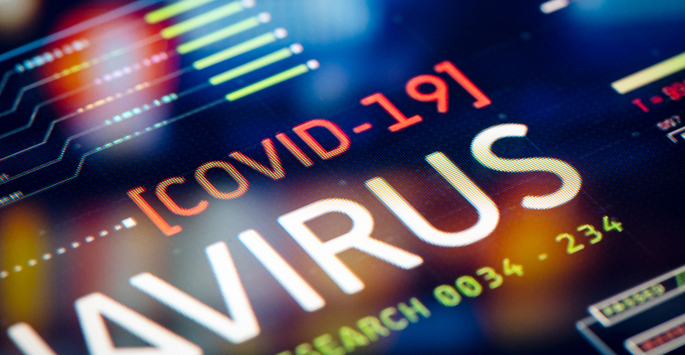by Jill Clendening
Anthony Fauci, MD, chief medical adviser to President Joe Biden’s administration and director of the National Institute of Allergy and Infectious Diseases (NIAID), recently met virtually with students of Vanderbilt University School of Medicine’s Master of Public Health (MPH) program to answer questions about lessons learned during the pandemic and to share career advice.

Fauci, the nation’s top leader in infectious disease research and an internationally renowned biomedical scientist, will receive Vanderbilt University’s Nichols-Chancellor’s Medal on May 15 when he speaks to the University’s graduating students and their families.
Fauci became a well-known public figure when the White House Coronavirus Task Force, on which he served, began holding daily press briefings in March 2020.
During his discussion, led by Milner Staub, MD, Noor Ali and Avi Vaidya, he called the need to address social determinants of health — factors such as safe housing, transportation, education, job opportunities and access to healthy food — “the big lesson learned in this pandemic.”
“With COVID-19, not only are Brown and Black people getting infected more because of the nature of their jobs that put them out into the community, but the underlying comorbidities that many African Americans and Hispanics have — diabetes, hypertension, obesity, chronic lung disease, kidney disease — mean once they do get infected, they have a much greater chance of getting a severe outcome, as shown by the multifold increase in hospitalizations per 100,000 population, and the multifold increase in deaths as compared to the white population.”
MPH student Ali asked how best to communicate with those who are not ready to take a COVID-19 vaccine. Fauci advised to not be confrontational, but rather to learn the reasons behind their concerns and provide information to directly address these concerns. He pointed to the initial hesitancy among minority populations as an example.
“There’s justifiable mistrust associated with the Tuskegee incident and beyond,” Fauci said. “You have to respect their hesitancy, and then explain why something like that could never happen again given the ethical constraints, the institutional review boards, the data and safety monitoring boards and all the things we have in place now.”
Carleigh Frazier, MPH, asked Fauci how to advocate for marginalized communities so they have equitable access to vaccines and testing. He cited the current administration’s investment of nearly $10 billion to expand access to vaccines and better serve communities of color, rural areas, low-income populations, and other underserved communities in the COVID-19 response.
“What President Biden has done … it’s really the hallmark of the vaccine implementation program to make equity an essential part of the program,” Fauci said. “Not an afterthought, not an appendix, not an annex, but an essential part of it.”
When asked how his medical and scientific education was crucial during the pandemic response, Fauci replied that while he relied upon his training to process rapidly evolving data and evidence, his undergraduate education — when he studied primarily the classics and philosophy — proved invaluable when dealing with dissonance and divisiveness. He said it helped him better understand the nature of man.
“It’s been bad enough that it’s a pandemic of historic proportions; it became much more complicated and problematic when you were dealing with a situation in which the divisiveness was to a degree that I’ve never seen before,” he said. “It became an almost surrealistic world where you have people completely denying reality that hits you right between the eyes.”
Harriet Myers, MPH, asked for his thoughts about global collaboration during the pandemic. Fauci responded that once initial information about the virus’ origin and means of transmission were more clearly understood, he was impressed with the global partnerships that rapidly formed to respond.
“We still have a Global Health Security network that was started under the Obama administration; we really need to strengthen this because, although it functions reasonably well, it’s got to function even better the next time around,” he said. “The thing I’ve been impressed with, rather significantly, is the collaboration and communication that we have with other countries, particularly Australia, the U.K., the European Union, Canada and others.”
He also applauded public-private partnerships, particularly with pharmaceutical companies.
“The idea of getting something like Operation Warp Speed going and getting three platforms with six companies, all working in the same general approach, with the same data and safety monitoring board, the same immunological parameters, the same design of the study, the same primary and secondary endpoints — that made it really, really easy to get really excellent data from the vaccines.”
Kathryn Edwards, MD, who holds the Sarah H. Sell and Cornelius Vanderbilt Endowed Chair in Pediatrics and is a professor of Pediatrics at Vanderbilt University School of Medicine, moderated the event.















